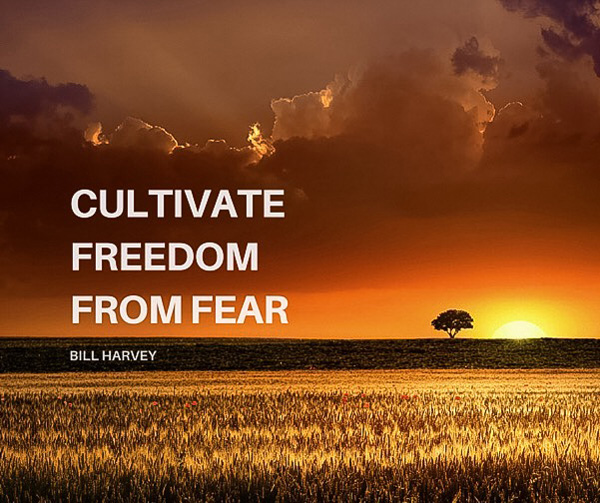Just one of the benefits of Observer and Flow States
Originally posted March 1, 2012
“A word to the wise is sufficient.” Confucius may have said this. The same conditions causing Acceleritis™ also reward those of us who can spend some time in the two higher states of performance. In the sped-up culture that continues to accelerate, we are more successful if we can extract learning and act on it quickly without delay.
The techniques, which we call psychotechnology, to help us stay in the Observer and Flow states therefore become important to learn and put into practice.
The wise are able to learn from a single experience without repetition because they are counting the cards. In the same sense that Captain Picard would say “more power to the shields”, the wise person has wordlessly said to himself/herself, “more power to observation”. This is why we say the entry into Flow state is through the Observer state.
It’s easier to turn on the Observer state than it is to just decide to turn on the Flow state.
The Flow state is a delicate balance of many variables. Having prepared by practicing being in the moment, not being attached to how well you perform or to anything else, being in the Observer state, having your skills in some degree of close balance with the challenge slope of the moment — these all must click for Flow to engage.
For the Observer state to take you over, there are fewer requirements. You must be single-pointedly focused — intensely following the thread of what is going on in the now, including and especially in your own mind and body, but equally in the “external” world. You must be intellectually honest with yourself, objectively critiquing your own last thought and feeling. You can’t critique what you don’t notice and so you are paying such close attention inwardly and outwardly that you are catching every inner impulse. You are bringing into your conscious awareness some of what would normally pass by subconsciously.
Getting into these “altered” states of consciousness is a “yogic” process — it is exactly the same kind of process one goes through in order to gain control of normally-involuntary muscles in the body, except in this case they are normally-unused “muscles” of the mind.
Some of what the Human Effectiveness Institute has rediscovered can be found in ancient Raja Yoga and Karma Yoga texts. I found it there years later, having discovered Flow state on stage at age 4 in the Catskill mountain resorts (then in their heyday).
An early experience worth sharing is one in which my Flow was so in the moment that I was unable to hear or even later remember the words I had adlibbed that got such huge laughs. Here’s an excerpt from a memoir I wrote for my Dad, bandleader and MC Ned Harvey:
Fat Jack was considered to be the hippest comic in the world by the denizens of the Borscht Belt. Jack E. Leonard was an insult comedian who may have created the genre. Don Rickles was next in the insult comedy lineage.
Speed and cleverness were the two main criteria. Fat Jack could backhand a comeback over the net even before the incoming line had ceased to echo in the air, and his riposte was both unpredictable and used the raw material of the incoming line. This was the stuff of genius.
Later I would think in terms of the terabytes per nanosecond of computing speed that would allow Jack to search his files, put together alternative combinations, and select the optimal response.
We were in our room in the Frat House, under the canteen…
In the room besides Ned, my mother Sandy, me and Fat Jack were a few other musicians and Bernie Klein the stage director. Jack was holding court and the other adults in the room were convulsed in spasmodic laughter. I was silent and missing a lot of the humor. I was maybe 5 years old.
For some reason Jack singled me out with his gaze and threw me a line. Then something weird happened — something that had never happened before.
I said something back and after an instant’s shocked silence the group broke up in surprised laughter. I was not able to hear my own voice. I had no idea what I’d said.
Jack smiled too but threw me back a clever counterpunch that I also couldn’t hear — I answered him in the same voice that everyone else but me could hear. Again my line got a big laugh, bigger than the first. This went on for a while.
When it was over and the conversation moved on, I began to be able to hear again. Jack gave me a sweet goodbye, not characteristic for him. I had no idea what had happened.
There are levels in Flow we have written about here before. The level at which one is so sewn into the universe that subject and object merge, and there is no inner rehearsal — this is the level where it’s possible to eject words so effortlessly one cannot later recall what they were. The first words are not checked in any way and are just allowed to flow through motor control without a second thought as to result or risk. This has only happened to me one time since, with the same audience appreciation. The great standups did it almost every night.
Incidentally, “don’t attempt this at home” as they say on TV gator domination and hotdog skateboarding crash shows. Don’t run off at the mouth trusting that it will be Flow. Actions should be in the opposite sequence: first sense that you are in Observer state and then when you are in Flow state. Only then can you loosen the valve on top of your mental stream of consciousness as a firehose without embarrassing consequences.
The standard state of human consciousness in all industrialized cultures has as one of its aspects the psychic spark gap between the thought of what to say next and the act of saying it. That distance is enough to take the average person at the average time out of Flow. However, using Fat Jack as our above-average model, he might have had an inkling of what his foil was going to say next, so Fat Jack might have had a split second to forethink an answer and another split second to do a gut check before he was delivering the line with perfect command of his voice.
Flow neurology will be very interesting to study. There is a significant speedup in the thought process and ability to see one’s own mind (thoughts, feelings, images) clearly.
Let there be no miscommunication: we are not recommending that you say the first thing that pops out of your mouth. Definitely wiser to not interrupt. Wait for the moment and then if you have something significant to say, say it, letting yourself have the added time to refine and challenge whatever it is you think is worth saying next.
You and the people in your team don’t need to get to such levels of Flow in order to vastly increase the efficiency and effectiveness of your operation. (And obviously it would not be helpful to have no memory of what you’ve said.) Everyone else being in EOP most of the time, if you can move yourself and your people up to spending a quarter of work time in Observer state, you’ll be in the top percentile of high-performing teams, analogous to a winning sports team and elite paramilitary units.
What you want are sensible procedures for instilling this level of alertness.
Here are a few starter steps:
- Share the model of EOP, Observer, Flow. Present it as a model, a construct, a lens, a useful fiction, a stimulant. If it is later scientifically validated, that’s great, but for now the thing is to test and observe results. The only reason we founded the Human Effectiveness Institute is because in our experience the techniques we share are useful in increasing innovation and success.
- Create an atmosphere where there is nothing to fear. Support people when they make mistakes, while correcting them in good spirits and being on their side.
- Take side notes to keep the mind clear of distractions. Ultrabrief one- or two-word trigger phrases that will remind you of the thought or feeling. Stay observant and connected in the now, with the inner/outer attentional focus described earlier in this post. Share this technique with your team as well.
- Reset all beliefs and expectations back to zero, except for agreements and dutiful obligations. Reconsider all possibilities. Erase assumptions. Especially the hidden ones. Root out hidden assumptions and expose and neutralize them.
Here’s to more alert reactions, and to even more anticipatory and effective pro-actions!
Best to all,
Bill
Follow my regular media blog contribution, “In Terms of ROI“ at MediaVillage.com under MediaBizBloggers. Read my latest post.
 Have you noticed it’s often difficult to overcome a bad start to the day, and that as the day begins so shall it most likely go? This makes the first moments of waking up in the morning a perfect time to remember and practice slipping into the Observer state. Particularly in these troubled times, sleep may be disturbed, dreams may put you into a bad mood that can carry through the whole day, unless you have a way of cleansing your mind and resetting your emotions before you get out of bed.
Have you noticed it’s often difficult to overcome a bad start to the day, and that as the day begins so shall it most likely go? This makes the first moments of waking up in the morning a perfect time to remember and practice slipping into the Observer state. Particularly in these troubled times, sleep may be disturbed, dreams may put you into a bad mood that can carry through the whole day, unless you have a way of cleansing your mind and resetting your emotions before you get out of bed.

